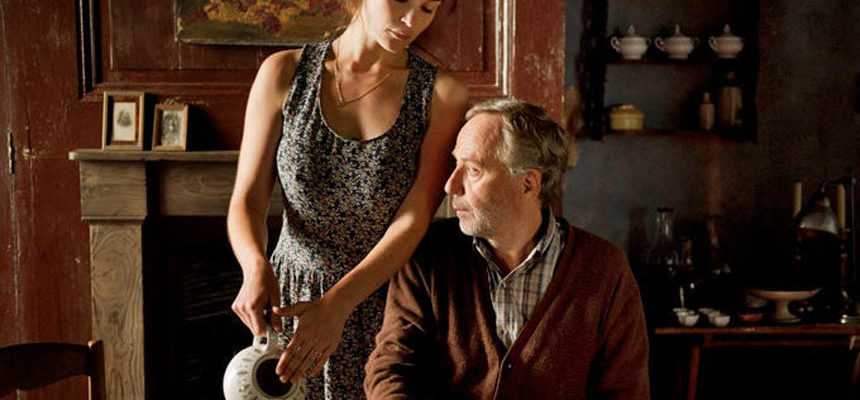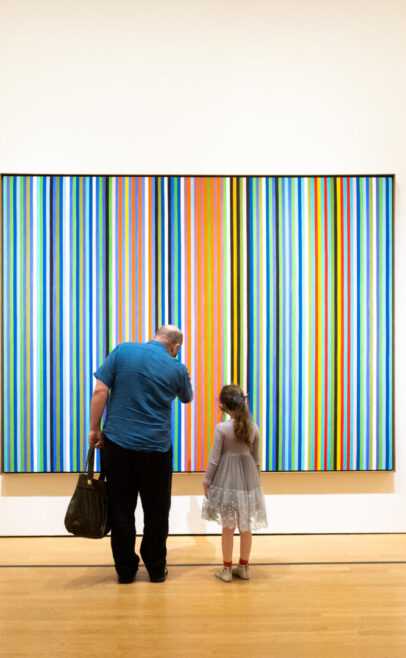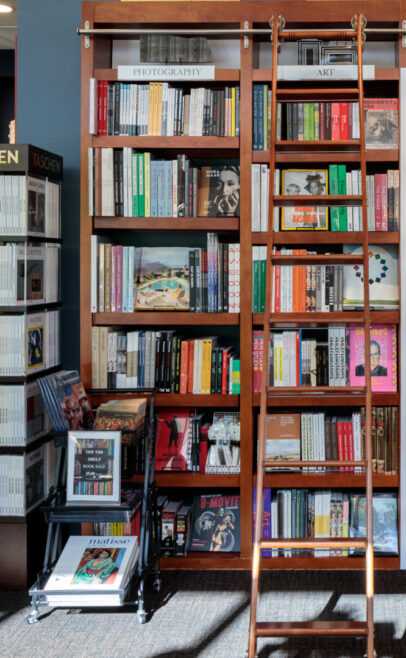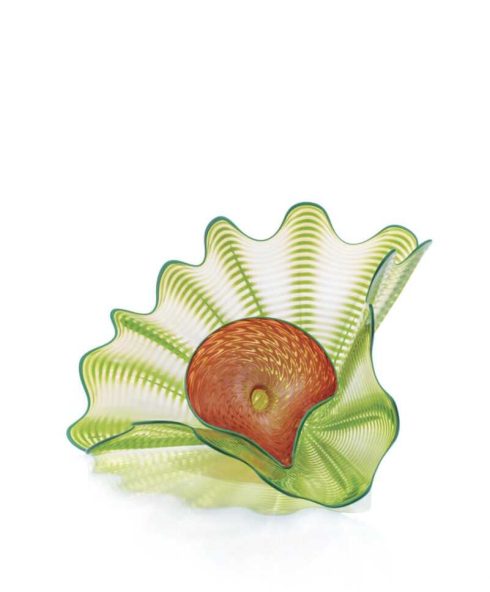Joining, no doubt, the many venues hosting French film series this week, in commemoration of Bastille Day (July 14th), the Oklahoma City Museum of Art will be screening five new works–and one recently re-released masterwork, Jacques Rivette’s Le Pont du Nord, on 35mm–that speak to the quantitative strength of the French film industry. In their curated selection, they also reveal commonalities which, while not exactly rising to the level of mass trend, do at least point to shared predilections and artistic profiles.
To begin with, La Semaine du film français/French Film Week is especially strong in female filmmakers. French Film Week opens with Anne Fontaine’s pulpy and pleasurable Gemma Bovery (Thurs., July 16th at 7:30 p.m., with encore screenings Fri., July 24th at 5:30 p.m. and Sat., July 25th at 8 p.m.), a contemporary re-imagining of Flaubert’s masterpiece, where the title character (played by Quantum of Solace’s Gemma Arterton, not coincidentally) is an English transplant in the same Norman village in which the novel was written more than a century before. The fine Fabrice Luchini (In the House) co-stars as the very taken baker, and Flaubert fan, who seems to will Gemma’s transformation into Emma Bovary into existence. Abounding with plenty of good old-fashion Gallic eroticism, Gemma Bovery is the soapiest (in the best sense) and one of the sexiest of this year’s selections–thanks in the latter case, most of all, to Arterton’s very earthy Gemma.
Mélanie Laurent, better known for her work as an actress–such as her starring turn as Shosanna, the undercover French Resistance fighter in Quentin Tarantino’s Inglourious Basterds (2009)–goes for something very different with Breathe (Fri., July 17th at 5:30 p.m.), her rather assured second feature as a director. Starring breakout performers Joséphine Japy as Charlie and Lou de Laâge as Sarah, Breathe tells the story of two female high school students who move from close friendship to something far-less amicable, after one of the two romantically interprets her feelings of intimacy. Generating some critical comparison to Blue is the Warmest Color (2013), albeit of a chased variety, Laurent’s film in fact features considerably better visual storytelling–something that is apparent, for instance, in a deft lateral tracking shot that reveals an eavesdropping Charlie in the throes of her obsession. Breathe is a real sleeper.
Rounding out the films that were shot, at least in part, by female filmmakers is Party Girl (Sat., July 18th at 8 p.m.), winner of the prestigious 2014 Caméra d’Or (for best first film) at the Cannes Film Festival. Co-directed by Marie Amachoukeli-Barsacq, Claire Burger and Samuel Theis, Theis also appears in the film as the son of a 60 year-old bar hostess, Angélique Litzenburger (as herself), who struggles to change her way of living after a former bar patron proposes marriage. Most notable in the case of Party Girl are its real-life connections: Litzenburger is actually Theis’s mother, as well as the mother of the other two non-professionals who play her other children, and has worked for many years in the same profession. Party Girl, in other words, is a cinema of autobiography, re-framed as fiction, by the real-world actors, as social-realist art cinema. Suffice it to say that Party Girl, which is a good deal closer to the real France than American audiences may be accustomed, lacks the glamour that its title ironically imposes.
Parents and children performing together is another of the connective elements in this year’s La Semaine du film français. Party Girl is joined by the aforementioned Le Pont du Nord (1981; Sun., July 19th at 2 p.m.), which stars, and was co-written by, the great Bulle Ogier (The Discreet Charm of the Bourgeoisie) and her equally astonishing daughter Pascale Ogier (Full Moon in Paris), a mere three years before the latter tragically died of a heart attack one day before her 26th birthday. Le Pont du Nord is classic Jacques Rivette (Celine and Julie Go Boating), the most mercurial of the French New Wave masters: when Bulle’s Marie and Pascale’s Baptiste are given a mysterious map of Paris, the oddly suited pair–a former prison inmate and a paranoid teenager–go about deciphering the object, and the rapidly changing city it represents. In this work that above all investigates the interpretative process, Rivette, one of the greatest film critics of the 1950s, returns to the conspiratorial Paris of his first feature, 1959’s Paris Belongs to Us, as well as to the frequent (for Rivette) inspiration of surrealist axiom Louis Feuillade, and latter director’s serial portraits of an emptied-out French capital during the First World War (cf. 1915-1916’s Les Vampires). Le Pont du Nord also provides a warm-up for another Rivette re-release that is certain to be the film event of 2015. More details will be forthcoming.
A generation younger than Rivette, Benoît Jacquot likewise teams a mother and daughter, the singular Catherine Deneuve and Chiara Mastroianni–talk about art cinema royalty!–in the exceptionally involving 3 Hearts (Sat., July 18th at 5:30 p.m.). Also starring Charlotte Gainsbourg (daughter of singer Serge and actress mother Jane Birkin), 3 Hearts tells the story of tax inspector Marc (Benoît Poelvoorde), who in separate chance encounters–how very Rivettean of Jacquot–falls for both Mastroianni’s and Gainsbourg’s characters. The twist, as it happens, is that they play sisters, and the question then becomes whether and when Marc will discover this coincidence, and what will happen after he does. Like Fontaine in the series’ opener, Jacquot brings a good deal of erotic energy to one of the year’s more purely entertaining French films, a work that above all makes the viewer care about the emotional fates of his potentially disastrous love triangle.
Last, but certainly not least, is the second of two Deneuve appearances, and another title from a post-New Wave generation auteur: André Téchiné’s In the Name of My Daughter (Fri., July 17th at 8 p.m.). Set in the late 1970s on the French Riviera, Deneuve stars as a casino owner who welcomes home her recently divorced daugther Agnès (Adèle Haenel). When Deneuve refuses to give her daughter her inheritance, Agnès hatches a plan with her mother’s attorney Maurice (Guillaume Canet), a womanizer with whom she has begun an expressly ill-advised love affair. Based on real events, Téchiné’s (Thieves) latest erotic thriller provides one of the genuine high points of this year’s showcase, not least for those moments and gestures that break through the constraints of narrative, from Agnès’s jumping on the bed to her African dance, which are each more about her physical specificity, they way she moves, smiles and so on, than they are about the character she plays. In these privileged passages we glean the same deeper truth about the art that Feuillade and Rivette also understood in generations past. It is here that we encounter a truly French cinema.









